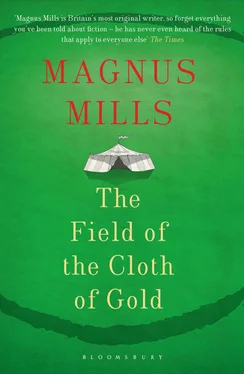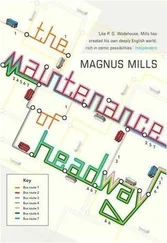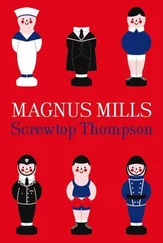‘Decadent, more like,’ uttered Brigant.
‘To tell the truth, I would welcome a hot bath myself.’
‘Maybe so,’ he said, ‘but it’s Isabella they’re trying to tame, not you.’
‘I’m fully aware of that,’ I replied. ‘Still, it’s a pity the bath’s gone unused, especially with the weather on the turn.’
‘Why?’ said Brigant. ‘Are you finding life in the field too tough?’
‘No.’
‘Well stop being so soft then!’
This wasn’t the first time Brigant had spoken in such terms. He was becoming increasingly intolerant of the soft life, as he called it. Other targets included frailty and decadence, but the general heading was softness (he tended to forget that he was once quite soft himself). It all arose from his division of the field into upper and lower parts. The division was purely notional, a product of his own invention, but Brigant was unbending in his belief. Over recent weeks he’d developed the idea further, and concluded that life became steadily harder the higher up the slope someone lived, as if it was a sort of sliding scale. Personally, I couldn’t see any difference: we all endured exactly the same weather conditions, seasonal changes and so on. Moreover, as I mentioned before, the slope barely amounted to anything; indeed it was scarcely perceptible, a minor inconvenience at worst. Nevertheless, Brigant insisted that life was harsher in the upper field.
His theory was about to be put to the test. After another day of threatening skies and rising winds, the rain finally came sweeping in. It was heavy and unremitting and didn’t cease for a week, during which period we were all confined to our tents. In these circumstances, there was nothing to do except wait patiently for the end. Even so, we had to endure a very dreary spell. For hour after hour, I listened to the sound of rain drumming on my roof. When I peeked out through my opening I could see the entire south-eastern encampment reduced to an indeterminate blur of dripping canvas; there was no sign of movement; puddles were forming in the avenues; and even the numerous flags and pennants were hanging down limp and wet. Over in the north-east, Hartopp’s angular tent appeared equally lifeless, though no doubt he was sheltering under his awning, eagerly testing its resistance to the weather and recording the facts for future reference. Meanwhile, hunched beneath his flysheet, Brigant sat and glowered at the driving rain.
Eventually my gaze fell on Isabella’s tent, faraway to the east. I’d never been invited beyond its tasselled portal, but I assumed the interior was dry, warm and cosy. I knew it was furnished with a tapestry and a collection of velvet cushions: I’d watched her carefully installing them on the day she arrived. There was also an eiderdown. Apart from that I knew nothing. She’d positioned her tent facing west so that she could catch the sun going down at the end of each day. As a consequence, it lay in my direct line of vision. I’d seen it on countless occasions and could even picture it with my eyes closed. Isabella’s door was always in view, yet she remained forever unapproachable. She’d made it plain from the beginning that she preferred to be alone; she was independent and forthright; furthermore, as her admirers had discovered, she was notoriously difficult to please. Still, I continued to live in hope. Isabella’s tent was crimson on the outside, sometimes flaring into fiery red, but I liked to imagine it was lined with cloth of gold.
When at last the rain subsided, I emerged to find the ground underfoot very wet indeed. It made coming and going unpleasant for a day or two. The problem was most pronounced in the south-east. No sooner had the sky cleared than I saw Aldebaran and his officials pacing around the encampment, prodding at the turf with rods and generally assessing the situation. Later I saw several of their men digging gullies between the tents. Obviously the area was waterlogged and they were taking appropriate measures.
Ever since arriving, the newcomers had seldom ventured beyond their self-imposed boundary: this was a point which had always stood in their favour. For some reason they were only interested in occupying their own corner, and the rest of the field they left untouched. I was intrigued, therefore, when I noticed the surveyor and an assistant walking along the river bank in the east. The assistant was carrying a large spool of string, a mallet and some wooden pegs. I saw Isabella peering out at them as they skirted her crimson tent, but they continued on their way with no more than a polite nod. I could now see that the surveyor was taking very deliberate strides, as if gauging a particular distance. Finally, the two of them came to a halt. The assistant knocked a peg into the ground and attached the string. Next, the surveyor produced an object from his pocket and examined it closely. It transpired that this was a compass; in due course he despatched his assistant westward with the spool of string, the mallet and another peg. The string was gradually paid out as he advanced across the field. I thought he passed unnecessarily close to Brigant’s tent (there was, after all, plenty of room on either side), but he pressed on regardless. Fortunately, Brigant was elsewhere at the time. When the string ran out the assistant stopped and waited. He hadn’t quite reached Hen’s territory in the extreme west, but apparently he’d gone far enough to satisfy the surveyor. At a given signal he knocked the second peg into the ground and pulled the string tight. Immediately it snagged on Brigant’s tent. The surveyor gave it a flick from his end to try and straighten it, but again it snagged. Unperturbed, the assistant tied the string to the peg and returned to join the surveyor. After a brief discussion, they headed back along the river towards the camp.
As soon as they were out of sight, I went over to investigate. The string was fairly taut and chafed against Brigant’s flysheet. Patently the plan had been to set out a straight line between the pegs, but the tent had got in the way.
‘What’s going on here?’ said a voice beside me. It belonged to Brigant. He’d been visiting Hartopp and had just come back. I explained to him about the surveyor and his assistant.
‘Well,’ he said, ‘couldn’t they have asked me before they started?’
‘You weren’t here,’ I replied. ‘Maybe they decided to leave it till tomorrow and then ask.’
‘Yes, maybe,’ said Brigant, although he didn’t sound convinced.
We were still debating the matter when Isabella arrived. She’d observed the episode with the string and was naturally incensed.
‘You should march into their camp,’ she told Brigant, ‘and demand they remove that string at once!’
‘I can’t be bothered,’ he said. ‘It’s probably easier to shift my tent.’
‘You can’t do that!’ said Isabella. ‘You’d be giving in to them.’
‘Really, I don’t mind,’ said Brigant, with a sigh. ‘All I want is a quiet life. Besides, I’ve been thinking of moving further up the field for a good while now. It’s more interesting in the north.’
Despite Isabella’s protestations, Brigant was adamant, so later the same day I went and helped him take his tent down. He chose a pitch some distance up the slope, and together we moved everything.
‘It’ll be good to get that trumpet out of earshot,’ he remarked, when we’d finished our work.
I was tempted to correct Brigant on two counts, but I thought better of it and made no comment.
The offending length of string now lay perfectly straight across the field. Next morning, the surveyor and his assistant returned for a brief inspection, nodded their heads in approval, then went away again.
Around noon, when milk pudding was normally being served in the field kitchen, a small party of men left the encampment and followed the river to the spot where the string line began. They were carrying spades, pick-axes and shovels. It was a slightly odd scene: despite their plentiful stock of tools, these characters seemed distinctly unworkmanlike. They straggled along dragging their heels, and were plainly in no hurry to begin whatever task they’d been assigned. In this respect they were quite different from the other men in the camp: the majority performed their duties with flawless efficiency. The present bunch, by contrast, hardly knew where to start. They stood around, gawping at the peg and the length of string as though they’d never seen such items before; then they turned and gazed haplessly into the west. Eventually one of them started poking at the ground with his spade, but to such little effect that he soon gave up. Another tried a pick-axe, and similarly failed to make any impression. I was getting frustrated just watching their antics, so after a while I strolled casually across the field, drifting in their general direction but trying my best to remain aloof. I didn’t really want to get involved with the newcomers again, but on the other hand I was interested to know what they were trying to do. There was no harm, I reasoned, in taking a closer look.
Читать дальше












